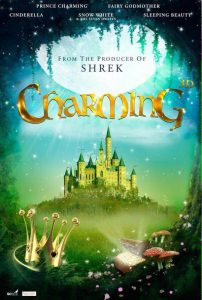For those of you unaware Jon Stewart is mostly known as a political news satirist, host of the Daily Show, and can now add director to his resume. He debuts with the film Rosewater, based on the memoirs of Maziar Bahari – Then They Came for Me.
Rosewater is a politically charged tale of injustice, loneliness, grief and morality. The always sublime Gael Garcia Bernal plays Maziar Bahari. A seasoned, youthful Iranian-Canadian journalist leaving his London home to cover the now infamous 2009 Iranian presidential elections. He leaves behind his newly pregnant fiancee Paola played by relative screen new comer Claire Foy with assurances of a quick and safe journey.
Once arriving in Iran he quickly befriends a local taxi driver, played by Demitri Leonidas who represents the barely concealed hostility and drive for change towards a seemingly corrupt government. You can’t help but empathise with the plight of Demitri. You feel the seething rage come from him as he remarks ‘They took my vote!’. He and his spirited and animated colleagues rally for change, digitally and physically. There are many analogies to draw for western audiences here, Australia’s own David Hicks springs to mind. And the west certainly is no stranger to Generation Y led decrees of injustice and a need for change.
Maziar is somewhat unbiased and restrained in his journalism, but under the behest of Demitri, he knowingly puts himself at risk by filming a violent retaliation of governments forces against a large scale protest. Shortly after this Maziar is arrested in his childhood home and taken to prison. In a twist of absurdity his captors erroneously believe he is guilty of being a spy for possibly the CIA, MI6 or Newsweek. Bizarrely enough, the main evidence they have against him is skit from the Jon Stewart’s own Daily Show filmed days earlier. In a mock interview Maziar denies being a spy under a ridiculous line of questioning for the comedy show. Using this and evidence such as his facebook likes, a copy of Empire magazine (declared to be pornography) and his employer, Newsweek, they declare him to be a spy and an American or Zionist shill there to spread propaganda. He is held in solitary confinement and his captor is under strict instruction to finesse him into a confession. Maziar identifies his captor and tormentor (Kim Bodnia) by his smell. That of rosewater. In a terrible irony he associates this smell from his youth when he knew the odour to mean only beauty and divinity.
The film digs it’s claws firmly into you from the start, only to stumble in the second act after Maziar is arrested. Stewart displays wise choices for a first time feature director. He is quite adept at composing the fast paced scenes around the city. Helped no doubt by the excellent work of editor Jay Rabinowitz who has helmed Tree of Life and The Fountain as editor. 
Stewart immerses the audience in the world of Iran. Once Maziar is in prison, the film falters and never really bites in with the intensity and emotional development from it’s beginning. A real shame considering the complex physical and emotional trauma Gael’s character goes through in solitary confinement. This is the big weakness of the film. While it deals with a dark subject matter the shots Stewart uses are very wide and quite bright. Instead of despair there’s a sense of openness. There’s no great conveyance that Maziar is under intense physiological and psychological anguish. In confinement he continually conjures up the ghost of this father and discusses the similarities of his father’s own experiences of imprisonment for the crime of being a communist. The dialogue between the two characters is at best mildly engaging and we never see any emotional ties between the two. On a superficial level it is understood he is going out of his mind, but the feeling wasn’t behind it for the majority of these scenes. His captor comes across as dimwitted and quick tempered, however not so terrifying. A melancholic lackluster emerges in the pace of the film and there is no real tension in it’s last half, save for one redeeming scene where Gael is shot at with a blank and coerced into signing a baloney confessional contract. It is really a shame Stewart fails to capture and convey such a traumatic period for Maziar.
Rosewater in some ways is a memorable tale, however the filming itself doesn’t quite do it justice. It illuminates a country in conflict. Held back by an oppressive and foolishly bureaucratic government, while being dragged by it’s own people into a Western led world of high ideals. Maziar’s story is one so bewildering it sustains a piqued curiosity throughout the film and leaves the viewer with many questions to ponder on the nature of his incarceration and of political corruption. Gael’s performance in this stands out, and he displays great maturity in such a role. He has done a remarkable job with such an interesting text. Dimitri Leonida’s performance also is illuminating and undoubtedly audiences will see more of this young British actor as he transitions from television to film roles. Jon Stewart has done admirably well for a virgin production and has chosen very interesting subject matter no doubt close to his heart.
Rosewater is in Australian cinemas from 19 February through Transmission Films.





